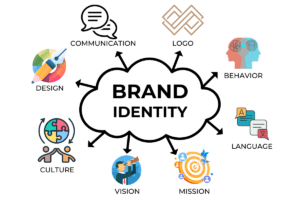This article may contain affiliate links. If you make a purchase through these links, we may earn a commission at no extra cost to you.
In today’s fast-paced market, innovative business models are driving unprecedented change and redefining the rules of success. These groundbreaking approaches to value creation and delivery have disrupted traditional industries, setting new standards for sustainable growth and customer satisfaction.
Key Points:
- Innovative business models represent a fundamental shift in how organizations create and capture value.
- They enable companies to adapt to evolving market demands, technological advancements, and consumer preferences.
- These models have revolutionized industries by challenging conventional norms and fostering a culture of continuous innovation.
1. Servitization
Servitization is an innovative business model where companies shift their focus from selling products to offering services. This product-service hybrid model has gained traction in various industries and is changing the game for businesses. Here are some key talking points to understand servitization and its impact:
Explanation of servitization
Servitization involves transforming a traditional product-centric business into one that provides comprehensive solutions and services to customers. Instead of just selling a physical product, companies offer a range of value-added services bundled with their products. For example, instead of selling manufacturing equipment, a company might offer maintenance, repairs, and training services along with the equipment.
Benefits for businesses and customers
Servitization brings numerous benefits for both businesses and customers. By offering services alongside products, companies can establish long-term relationships with customers, increase customer loyalty, and generate recurring revenue streams. Customers benefit from enhanced convenience, improved operational efficiency, and access to specialized expertise.
Examples of successful implementation
Servitization has been successfully implemented across various industries:
- In the manufacturing sector, companies like Rolls-Royce have shifted from selling aircraft engines to offering “power-by-the-hour” services where customers pay based on engine usage.
- In the automotive industry, companies like BMW provide mobility services such as car-sharing and subscription models in addition to car sales.
- In healthcare, medical device manufacturers often offer installation, training, maintenance, and remote monitoring services.
By adopting a servitization strategy, companies can differentiate themselves from competitors, create additional value for customers, and build sustainable business models that drive growth.
2. Dematerialization
Dematerialization involves the digitization or replacement of physical assets with software solutions, leading to a shift from tangible to intangible value creation.
Benefits of Dematerialization
1. Efficiency in the Media Industry
In the media industry, dematerialization has transformed content distribution from physical media to digital platforms, enabling instant access and personalized experiences for consumers.
2. Sustainability in Banking
Banking has embraced dematerialization through online banking, mobile payments, and digital wallets, streamlining transactions and reducing paper waste.
3. Improved User Experiences in Transportation
Transportation has witnessed dematerialization through ride-hailing apps, digital ticketing systems, and electric vehicle innovations, optimizing resources and reducing environmental impact.
By leveraging digital transformation, businesses can:
- Enhance operational efficiency
- Reduce environmental footprint
- Deliver compelling user experiences across diverse sectors.
3. Virtualization
Virtualization is an innovative business model that enables the delivery of intangible offerings through online platforms or virtual reality technologies. This approach allows companies to provide virtual goods and services, creating unique value for consumers. Here are the key points to understand about virtualization:
Definition
Virtualization involves the creation of digital experiences or products that can be accessed and consumed without a physical presence. It leverages technology to mimic real-world interactions and transactions in a virtual environment.
Emerging Trends
The market for virtual goods is rapidly expanding as consumers increasingly seek digital experiences. Some notable trends in this space include:
- Virtual gaming: Companies like Epic Games with their popular game Fortnite have built empires on virtual goods within their games, such as character skins or in-game currency.
- Virtual fashion: Online platforms like DREST allow users to style and dress virtual models with designer clothing, creating immersive and interactive fashion experiences.
- Virtual education: With the rise of e-learning, platforms like Coursera and Udemy offer virtual courses that provide knowledge and skills without the need for physical classrooms.
Case Studies
Several companies have successfully leveraged virtualization to disrupt traditional industries:
Gaming
Roblox, a user-generated content platform, allows players to create and monetize their own games within the platform, revolutionizing the gaming industry by empowering individuals to become game developers.
Fashion
The digital fashion brand, The Fabricant, creates purely digital clothing designs that can be worn virtually on social media or in augmented reality environments, challenging the traditional concept of physical fashion.
Education
Duolingo offers language learning courses through its virtual platform, making language education accessible and engaging for millions of users worldwide.
Virtualization opens up new possibilities for businesses to provide innovative and immersive experiences to their customers. By embracing this model, companies can tap into the growing demand for digital products and services while creating unique value propositions that disrupt traditional industries.
Airbnb’s Online Marketplace for Accommodations
Overview of Airbnb’s Groundbreaking Business Model
Airbnb introduced a disruptive business model that transformed the traditional accommodation booking process. By connecting hosts with travelers through an online platform, Airbnb revolutionized the way people experience travel and lodging.
Role of the Peer-to-Peer Sharing Economy
The success of Airbnb’s business model is deeply rooted in the peer-to-peer sharing economy, where individuals can monetize their underutilized properties by renting them out to travelers. This approach not only provides unique and personalized accommodation options but also fosters a sense of community and cultural exchange.
Impact on the Hotel Industry
Airbnb’s rise has significantly impacted the hotel industry, prompting traditional hospitality providers to adapt to changing consumer preferences and competition from alternative accommodation options. The dynamic pricing and diverse range of property types offered by Airbnb have reshaped travelers’ expectations and choices.
Challenges Faced by Airbnb
Despite its success, Airbnb has faced regulatory hurdles in various cities and regions worldwide. Additionally, trust issues related to property quality, safety, and fair practices have been subjects of concern for both hosts and guests using the platform.
By addressing these key talking points, we gain insight into how Airbnb’s innovative business model has redefined the accommodation industry while navigating challenges inherent to its disruptive approach.
5. Alibaba’s Online Retailing without Inventory
Alibaba, a global powerhouse in the e-commerce industry, has achieved unparalleled success through its inventory-free business model. By connecting millions of buyers and sellers on its platform, Alibaba has revolutionized the way retail transactions take place without the need for holding physical inventory.
Key Points:
- World’s Largest E-commerce Company: Alibaba’s innovative approach has propelled it to become the world’s largest e-commerce company by facilitating online retail transactions without the burden of managing extensive inventories.
- Ecosystem Approach: The platform economy created by Alibaba fosters a comprehensive ecosystem that provides a wide array of services to support seamless online transactions. This includes payment solutions, logistics support, and digital marketing tools, enabling businesses to thrive in the digital marketplace.
- Impact on Small Businesses and Global Trade: Alibaba’s platform has played a pivotal role in empowering small businesses by providing them with a global reach and access to a vast consumer base. Additionally, the company’s influence on global trade dynamics cannot be understated, as it has facilitated cross-border commerce and international business collaborations on an unprecedented scale.
Alibaba’s innovative business model has not only redefined the e-commerce landscape but has also significantly contributed to the evolution of global trade dynamics and small business empowerment.
6. Hilti’s Construction Tool Rental instead of Purchase
Hilti, a global leader in providing innovative solutions for the construction industry, has adopted an innovative business model that focuses on providing construction tools on a rental basis rather than selling them outright. This approach has disrupted the traditional model of tool ownership and has several advantages for both contractors and Hilti itself.
Here are the key points about Hilti’s construction tool rental model:
Overview:
Hilti’s innovative approach recognizes that not all contractors need to own every tool they use. Instead, Hilti offers a wide range of high-quality tools for rent, allowing contractors to access the latest equipment without the burden of purchasing and maintaining them.
Cost Savings and Access to Specialized Equipment:
Renting tools from Hilti offers significant cost savings compared to purchasing them outright. Contractors can avoid upfront costs, depreciation, and maintenance expenses. Moreover, renting provides access to specialized equipment that may be required for specific projects, without the need for long-term investment.
Embracing Digital Technologies:
Hilti has embraced digital technologies to enhance its tool rental services. Through their online platform, contractors can easily browse and select the tools they need, check availability, and schedule delivery or pickup. Additionally, Hilti’s digital tracking system enables efficient tool management by monitoring usage, maintenance schedules, and repairs.
By adopting this innovative business model, Hilti has transformed the way contractors access and utilize construction tools. It has empowered them with flexibility and cost-effectiveness while ensuring they have access to state-of-the-art equipment for their projects. This shift towards rental models is not unique to Hilti; other industries such as the skilled trades and seasonal businesses are also recognizing the value in renting specialized tools and equipment rather than buying them outright.
7. IKEA’s Ready-to-Assemble Furniture with Low-Cost European Design
IKEA is widely recognized for its innovative business model that has revolutionized the furniture industry. The company’s unique value proposition combines affordable prices, modern aesthetics, and customer involvement through self-assembly. Here are the key talking points:
- Affordable Prices and Modern Aesthetics: One of IKEA’s main draws is its ability to offer stylish furniture at affordable prices. By leveraging economies of scale and efficient supply chain management, IKEA is able to keep costs low without compromising on design. This approach has allowed them to appeal to a wide range of consumers who value both style and affordability.
- Customer Involvement through Self-Assembly: IKEA’s ready-to-assemble furniture not only reduces manufacturing and transportation costs but also involves customers in the creation process. By allowing customers to assemble their own furniture, IKEA taps into a sense of pride and ownership, creating a unique customer experience. Furthermore, self-assembly reduces packaging size, making transportation more efficient and environmentally friendly.
- Global Expansion Strategy: IKEA’s success can also be attributed to its global expansion strategy, which is based on standardization and localization. While maintaining a consistent brand image worldwide, IKEA adapts its product offerings to suit local market preferences and cultural differences. This approach allows them to capture the essence of Scandinavian design while catering to the specific needs of each market.
- Criticism Regarding Sustainability Practices: Despite its focus on eco-friendly materials and energy-efficient solutions, IKEA has faced criticism regarding its sustainability practices. Some argue that the company promotes excessive consumption through its affordable prices and frequent product updates. Additionally, there have been concerns about deforestation related to the sourcing of materials for their products.
IKEA’s innovative business model has disrupted the furniture industry by offering cost-effective design solutions that prioritize customer involvement and global expansion. However, it also faces challenges related to sustainability practices. By continuously addressing these concerns and finding innovative solutions, IKEA maintains its position as a leader in the industry.
Key Takeaways
- Successful innovative business models exhibit characteristics such as unique value propositions, customer involvement, and sustainable practices.
- These models often focus on cost-effectiveness, modern aesthetics, and global expansion through standardization and localization.
- It’s crucial for organizations to explore and apply these principles to drive innovation within their own operations.
By studying the examples of IKEA, Alibaba, Hilti, and Airbnb, you can gain valuable insights into how innovative business models have reshaped industries. Consider how your organization can adopt similar strategies to stay ahead in today’s fast-paced market.






